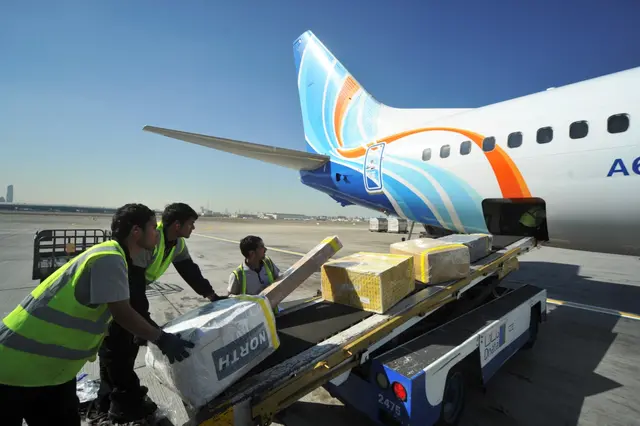The future is not so bright. Almost eight million fresh college graduates are looking for jobs in China this year, a new high in recent years. But many do not seem to care much whether they find one or not.
They are devotees of "slow employment", sort of a trendy lifestyle that advocates a not-so-fast attitude in finding a job after graduation.
"Slow employment" is the outcome of social progress and better-off families. In the old days, fresh graduates would kill or die for a job simply because, if not, they would have no money to survive.
Now, many mollycoddled young people no longer carry such economic burdens. Parents are ready and willing to finance their kids as long as they need money.
Job fair in the northern Chinese city of Tianjin earlier this year.
At the same time, society is no longer judging success only through one's occupation and income, and technology has reshuffled the employment structure in China.
According to an education report in 2016 released by research company MyCOS, the unemployment rate of Chinese college graduates was 7.5%, and 2.4% of the unemployed were neither looking for jobs or going to graduate schools.
The joys of privilege
A young lady, only willing to be identified as Xu, from the Communications University of China, has taken her time to find a job, but for a different reason entirely -she is picky.
The 25-year-old took several job interviews, but none of the opportunities met her exacting standards. She insists on a job she will enjoy, and she wants to be well paid for her efforts.
Regardless of her opinion about the jobs in question, she failed several interviews and returned home to Shandong Province, idling away half a year before she was eventually hired by a training agency in Beijing.
"It is easy to find a job, but hard to get a good one," said fresh graduate Huang Xiaoqian. Huang spent three months looking for a job in Chengdu, Sichuan's provincial capital, after months of searching in Beijing, where she graduated.
College students wait to apply for jobs at a job fair in Hangzhou, capital of east China's Zhejiang Province, Oct 27, 2012.
"Traditional jobs no longer hold the same appeal. There are much more choices now – opening a Taobao shop, becoming an overseas purchasing agent, doing live streaming – but these are not deemed 'real' jobs with a stable monthly income and therefore are not included in the so-called 'employed population,'" said Yan Su, a professor at Zhejiang Sci-Tech University.
"Slow employment is most common among students whose families have enough money to allow it. They want to have more alternatives and richer experiences," said Wang Lei, a law professor at Peking University. "But they should not wait too long or it may have the opposite effect."
Time to grow up
The new phenomenon also exposes a bigger picture of the gap between education and reality.
The research report from MyCOS showed that students from three of the most popular majors in China – economics, business administration, and literature – faced most difficulties in finding jobs. In contrast, students studying history, water conservation, energy, and architecture got offers much more easily-not exactly what you might expect.
"We should be aware of the problem behind 'slow employment.' The majors in many colleges and universities are outdated and do not match market needs," said Wei Qi, a professor with Xi'an University.
"Schools should reassess their majors, update their courses, and pay more attention to practical skills rather than pure theory," Wei added.
A job fair held at Xi'an University of Science and Technology attracted thousands of college graduates, Nov 7, 2015.
Wang Zhifang worked at a well-known company for years after graduation before starting her own business several years ago. Her own experience has convinced her that under the current education system, fresh graduates need time to plan their careers before jumping into a major commitment to a company.
"Gap years are normal overseas. They spent their time traveling, doing community work and internships, as a way of expanding their horizons," she said.
"While I was at school, I had no plan for my future and made the same decision as the majority of my peers. But I soon regretted. It would have been much better if I had not been in such a rush and thought it through."
(ASIA PACIFIC DAILY)
 简体中文
简体中文

